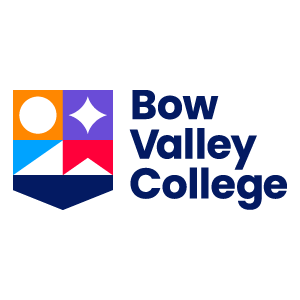Development of a Self-Advocacy Curriculum for Young Adults with Developmental Disabilities
Contact principal
Portails
-
 Calgary, Alberta, Canada
Calgary, Alberta, Canada
Portée du projet
Catégories
Travail social Éducation Social justiceCompétences
self-awareness advocacy target audience planning learning styles creativity interactive learning lesson planning adaptability resilienceThis project involves creating a self-advocacy curriculum for young adults with developmental disabilities, tailored to empower them with skills to express their needs, make decisions, and navigate various aspects of their lives. The curriculum will focus on teaching self-awareness, communication skills, rights, responsibilities, and the tools necessary to advocate for themselves in personal, educational, and vocational settings.
Objectives:
- Curriculum Development: Design a comprehensive self-advocacy curriculum that includes lesson plans, activities, and resources specifically adapted for young adults with developmental disabilities.
- Enhance Communication Skills: Create strategies that teach students how to effectively communicate their needs, preferences, and choices.
- Focus on Rights and Responsibilities: Help students understand their legal and personal rights and responsibilities in areas such as education, healthcare, employment, and social settings.
- Real-World Application: Provide practical tools and scenarios for students to practice self-advocacy in real-life situations.
- Interactive Learning: Develop engaging, hands-on activities that are accessible and encourage participation and interaction.
Project Phases:
Research and Planning (Weeks 1–3):
- Research best practices in self-advocacy education for individuals with developmental disabilities.
- Meet with professionals in the field, such as educators, disability advocates, and occupational therapists, to understand the unique needs of this group if possible.
- Identify key self-advocacy skills and content areas to be included in the curriculum.
Curriculum Development (Weeks 4–10):
- Draft lesson plans and activities that teach self-advocacy skills progressively.
- Create accompanying materials such as visual aids, handouts, and role-playing exercises.
- Design adaptations to ensure accessibility for students with varying levels of ability.
Finalization and Presentation (Weeks 11–12):
- Incorporate feedback to finalize the curriculum.
- Present the completed curriculum and instructional materials to stakeholders, including Resilient Hearts' staff or other potential instructors.
Learning Outcomes for Students:
- Understanding of Self-Advocacy Education: Gain a deep understanding of the importance of self-advocacy for individuals with developmental disabilities.
- Curriculum Design Skills: Develop the ability to design, organize, and implement curriculum for specific populations.
- Adaptability in Teaching: Learn how to modify teaching methods to accommodate different learning styles and abilities.
- Team Collaboration: Collaborate with peers and professionals to create a final product that meets the needs of a real-world audience.
- Communication Skills: Improve professional communication by presenting curriculum ideas to stakeholders and working with professionals in disability services.
Assessment Criteria:
- Comprehensiveness and Relevance of the Curriculum: Does the curriculum effectively cover all necessary self-advocacy skills and is it appropriate for the target audience?
- Innovation and Creativity: Are the activities engaging, interactive, and designed in a way that encourages learning and participation?
- Feedback and Improvement: How well did the team incorporate feedback from pilot testing and stakeholders into the final version of the curriculum?
Project Deliverables:
Self-Advocacy Curriculum:
- Lesson plans covering topics such as self-awareness, decision-making, communication skills, and understanding rights.
- Activities and exercises designed to foster personal growth and confidence in advocating for oneself.
- Adaptations for diverse learning needs (e.g., visual supports, simplified language, or role-play scenarios).
Instructor’s Guide:
- A guide for instructors on how to teach the curriculum, including teaching strategies, support for diverse learning styles, and tips for fostering an inclusive classroom environment.
Student Workbook:
- A workbook with interactive activities, prompts, and worksheets that help students practice self-advocacy.
- Reflection sections to encourage students to track their progress and identify personal goals.
This project will equip students with skills in curriculum design while supporting the empowerment of young adults with developmental disabilities, giving them the tools to advocate for themselves in various aspects of their lives.
Implication directe dans les tâches du projet, en offrant des conseils et démonstration de techniques.
Donner accès aux outils, logiciels et ressources nécessaires pour la réalisation du projet.
Enregistrements programmés pour discuter des progrès, relever les défis et fournir des commentaires.
À propos de l'entreprise
Resilient Hearts is a community organization that empowers young adults with developmental disabilities by equipping them with essential skills for independent living. We provide in-person community access services in Calgary and the surrounding areas.
Contact principal
Portails
-
 Calgary, Alberta, Canada
Calgary, Alberta, Canada
